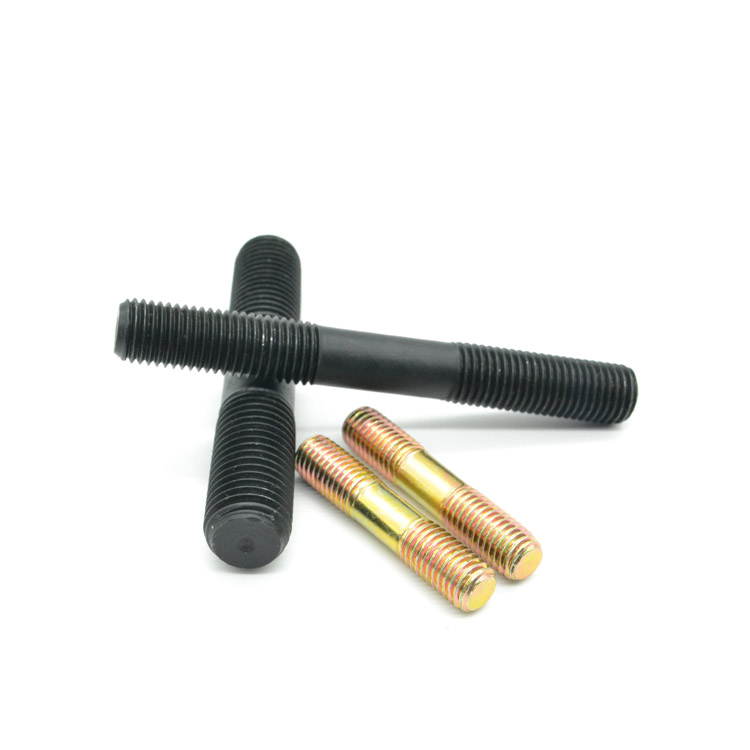Supplier Options for Bolts 50mm x 50mm in the Market Today for Various Applications
Jul . 28, 2024 16:52 Back to list
Supplier Options for Bolts 50mm x 50mm in the Market Today for Various Applications
Understanding the Importance of Choosing the Right Supplier for Bolts
When it comes to manufacturing and construction, the quality and reliability of hardware components are paramount. Bolts are among these essential components, serving critical functions in holding structures together and ensuring safety in various applications. This is why selecting the right supplier for bolts, particularly 50-50 bolts (a type denoting a specific size or standard specification), is crucial for businesses.
The Role of Bolts in Industry
Bolts are fasteners used to join two or more objects together, typically made of metal and featuring threads that allow for the attachment of a nut. The integrity of a structure, machinery, or any assembled product greatly depends on the quality of the bolts used in its construction. As such, industries ranging from automotive to aerospace to construction must ensure they source their bolts from responsible and reliable suppliers to meet safety and performance standards.
What are 50-50 Bolts?
In engineering terms, 50-50 can refer to a specific dimension or grade of bolts, often indicating a balanced and standardized design for optimal performance. These bolts are crucial in applications where strength and reliability are mandatory. Having a firm grasp on the specifications and standards associated with 50-50 bolts is essential for engineers and procurement officers when determining the best supplier.
Factors to Consider When Choosing a Supplier
1. Quality Assurance The first aspect to look for in a bolt supplier is their commitment to quality. Suppliers should adhere to relevant industry standards and certifications, such as ISO 9001, to ensure their products meet stringent quality requirements.
bolts 50 50 supplier

2. Reliability and Reputation A supplier's history of reliability can be assessed through client testimonials, case studies, or industry reviews. A reputable supplier will have a track record of delivering quality products on time and maintaining good customer relationships.
3. Material and Manufacturing Processes Understand the materials used in producing 50-50 bolts. Suppliers should offer bolts made from high-strength steel or other durable alloys that cater to the specific needs of an application. Moreover, it's essential to comprehend their manufacturing processes, such as heat treatment and surface coatings that improve bolt performance and longevity.
4. Product Variety and Customization A good supplier should offer a variety of fasteners to meet diverse needs. Additionally, they should provide options for customization, such as different coatings or finishes, which may enhance corrosion resistance or aesthetic appeal.
5. Technical Support A knowledgeable supplier is essential for providing technical support, including assistance with product selection, installation advice, and answers to complex engineering questions.
6. Pricing and Terms While cost shouldn’t be the sole consideration, it’s important to evaluate pricing structures and payment terms. A competitive supplier will offer fair pricing without compromising on quality.
Conclusion
Choosing the right bolt supplier, especially for specific types like 50-50 bolts, can significantly impact a project's success. By carefully evaluating potential suppliers based on quality, reputation, material standards, product range, technical expertise, and cost, businesses can ensure they are making an informed decision that serves their operational and safety needs. Investing time in this selection process can lead to improved project outcomes, enhanced safety, and long-term savings. In the fast-paced world of industry, securing a dependable supplier is more than just a transaction; it’s a partnership built on trust, quality, and mutual success.
Latest news
-
High-Quality Panel Stud Bolt Reliable Panel Stud Bolt Factory & Suppliers
NewsJul.08,2025
-
High-Precision Fine Thread Locknuts Manufacturer & Supplier Custom Solutions
NewsJul.08,2025
-
PH Imperial Stud Bolt – High Strength Fasteners from Leading Supplier & Factory
NewsJul.07,2025
-
High-Quality Allen Wrench Bolts Leading Factory, Company & Suppliers
NewsJul.07,2025
-
Wholesale Ball Stud Bolt - High Quality Supplier & Factory Price Reliable Wholesale Ball Stud Bolt Company
NewsJul.06,2025
-
High-Strength Alloy Bolts Manufacturer & Supplier Quality Alloy Fasteners Factory
NewsJul.06,2025
